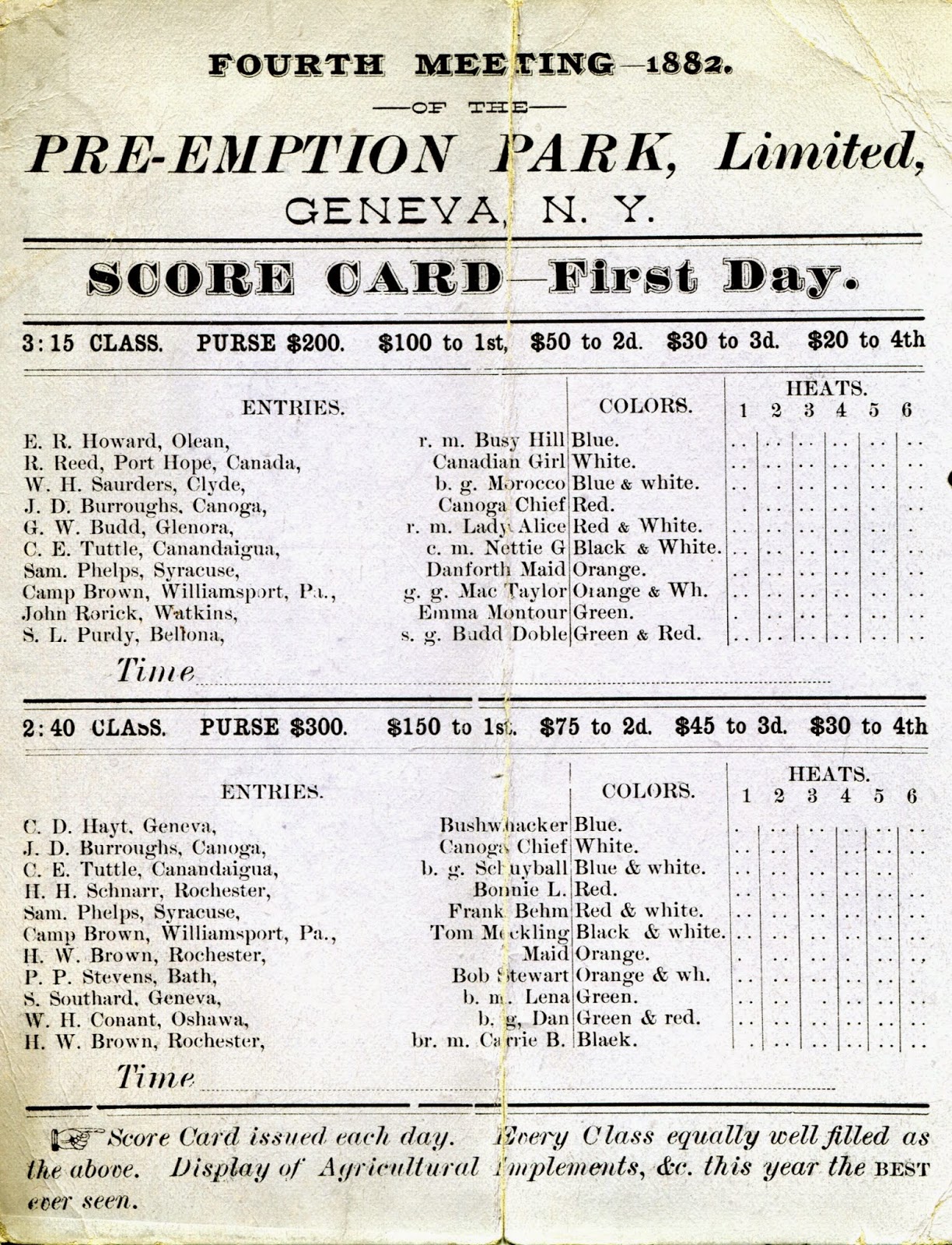Over the years several families have called Rose Hill home
and one of them was the William Strong family.
In 1835 Strong purchased the Rose home and property. After amassing a fortune as a wool merchant in
New York City, Strong retired and moved his family to Geneva. It was Strong who built the Greek Revival
mansion people see and enjoy today. To build the mansion, the Rose house was moved to
the north and converted it into a carriage house (currently the Rose Hill
Mansion Visitor Center and Gift Shop).
The original 1809 kitchen was kept in place and Strong built
his mansion around it.
Though we know that the mansion was built between 1837 and
1839, the earliest reference date for its completion is September 7, 1839. Why September 7? According to newspaper accounts that’s when
President Martin Van Buren visited Rose Hill.
Below are two very different accounts of the Presidential visit.
From
the Courier
ROYAL PAGEANT.
Saturday the 7th
inst. was signalized by the “grand entre” of the President of the United States
into our quiet little village; and as the old Federal Gazette has been
discontinued, it may be expected that we should give some account of the
pageant.
. . . Well – the day arrived – and the
steamboat arrived, (with less than her usual number of passengers,) and Van
Buren arrived, accompanied by a long string of carriages . . .
On reaching the
Hotel, the Marshal requested the audience to give “three times three,” with
which a part of the company complied, and raised a feeble cry, which died away
at number seven, and the two remaining cheers were dispensed with.
Mr. Van Buren then,
with the federal office-holders “near his person,” mounted the piazza, the
timbers of which being, like his sub-treasury scheme, somewhat rotten, gave
way, and very disrespectfully landed the little group of “spoils men” safely
upon the ground. We understand the
“Northern man with Southern principles,” was a little frightened, and that for
a few minutes, heartshorn [sic] and cologne were in brisk demand. . . . Mr. Sutherland made a long speech to
Mr. Van Buren, and Mr. Van Buren delivered a short speech to Mr.
Sutherland. . . .
After shaking hands
with some of the citizens, the President retired to a private house to partake
of the hospitalities of a personal friend, leaving the “dear people,” some of
whom . . . had come from fifteen to sixty miles to help do him honor, to go
fasting home, or to take their dinners without him at the public houses. Mr. Van Buren attended church on Sunday, and
yesterday morning proceeded on his way to Auburn, where we understand the next
act of the farce was to be performed
 |
| Martin Van Buren |
An
excerpt from the Geneva Gazette
“On Monday morning, in company with the Committee
of Arrangements, and a number of citizens, [President Martin Van Buren]
proceeded on his way to Waterloo. After visiting the splendid mansion of W.K.
Strong, Esq., on the east side of Seneca Lake, he was received by the Committee
from Waterloo with a great concourse of citizens from Seneca County and with
them proceeded on to that place. We have thus briefly given an account of the
President’s reception at Geneva, sensible that the description falls far short
of reality…”
In honor of the 175th anniversary of PresidentVan Buren’s visit we will
host a birthday party for Rose Hill Mansion on Sunday, September 7, from 2-4
p.m. Our Education Coordinator, Alice Askins, will present a program about
William Strong, at 2 p.m. on the back patio. After the program there will be a behind-the-scenes
tour of the mansion and, of course, birthday cake will be served. The event is
free and open to the public.
On a side note, after
building his beautiful home, Strong did not live there for very long. Four years after its completion, his wife
died and Strong moved his family back to New York City.
 |
| William Strong |








